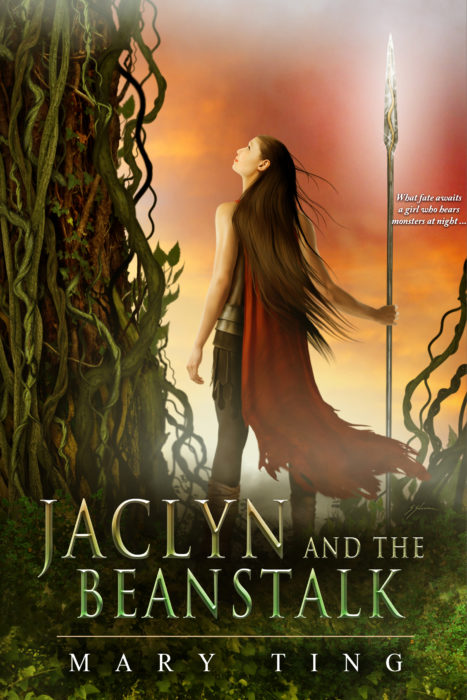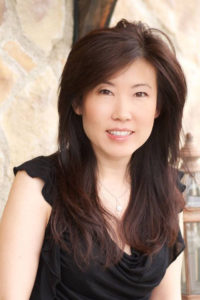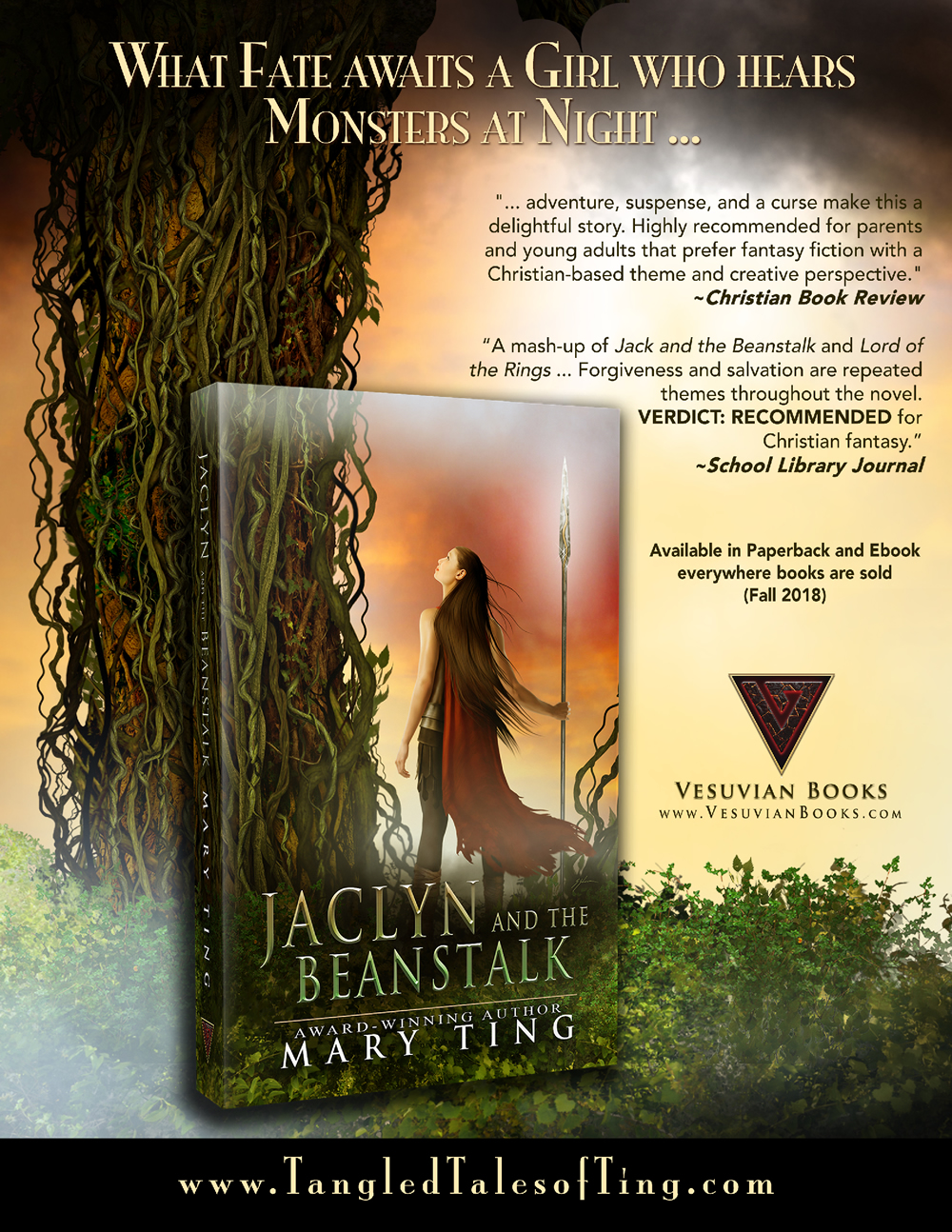Sponsored Review: Jaclyn and the Beanstalk
At night, Jaclyn hears voices in her head. Monsters’ voices, she knows, because the cries that destroy her sleep couldn’t be tortured from a human throat. It’s a terrible thing, to have monsters take up residence in your dreams.
It’s worse to meet them in waking life. Soon Jaclyn will know this, too.
In Jaclyn and the Beanstalk, Mary Ting retells the story of “Jack and the Beanstalk.” You needn’t read further than the cover to know that Ting has traded out a hero for a heroine—though Jack is cleverly retained for another role in the story. But her revision goes deeper. Ting unites the English fairy tale with a Christian legend, one of those supernatural fables invented around figures taken out of the gospels.
This union dyes the entire fabric of the story. The weaving of Christianity into the tale, together with an allusion to the Black Plague, tug this fairy tale toward history. Yet Jaclyn and the Beanstalk lacks the detail and complexity that mark the recreation of a historical era. The book cannot be taken as historical fiction. It retains its fairy-tale simplicity, though its atmosphere is infused with a hazy air of the Middle Ages.
More significantly, Ting’s use of Christianity tints her whole story with religion. No one strays far from Christian belief, not even the villain. To believe in God, however, is not to love him. Religion, so foundational to the story’s premise, rouses to a vital force in the story’s conclusion. Jaclyn and the Beanstalk is a Christian novel.
In many ways, this novel appears crafted for young Christian girls: a bold heroine, only sixteen, who takes a stand on her faith and embarks on a romance that ends happily with marriage and babies. Ting ascribes almost instant passion to the romance, but limits its expression until marriage.1
Whatever the challenges of its romantic elements, Jaclyn and the Beanstalk retells the old fairy tale of giants and beanstalks with energy and freshness. Beginning with familiar ideas, it ends in surprising places.
Best for: Fans of fairy tale retellings.
Discern: Moderate violence, including dismemberment; two people are tortured, one in the background (results are later seen); mild language; and sexually charged banter and situations between male and female character presented as healthy.2
Note: The term “discern” does not mean we must always avoid story elements, such as certain words or themes, because we find them offensive. In Christ, we have the option of freedom to engage with any story as in-training members of Jesus’s church family. Some readers, however, may need to avoid a story if it will tempt them personally to sin.
Mary Ting creates fantasy, sci-fi, and fairy tale novels, including the Secret Knights and Descendant Prophecies series as well as the Crossroads Saga. She lives in California with her family.































Have you read Sponsored Review: Jaclyn and the Beanstalk ? Share your own review.